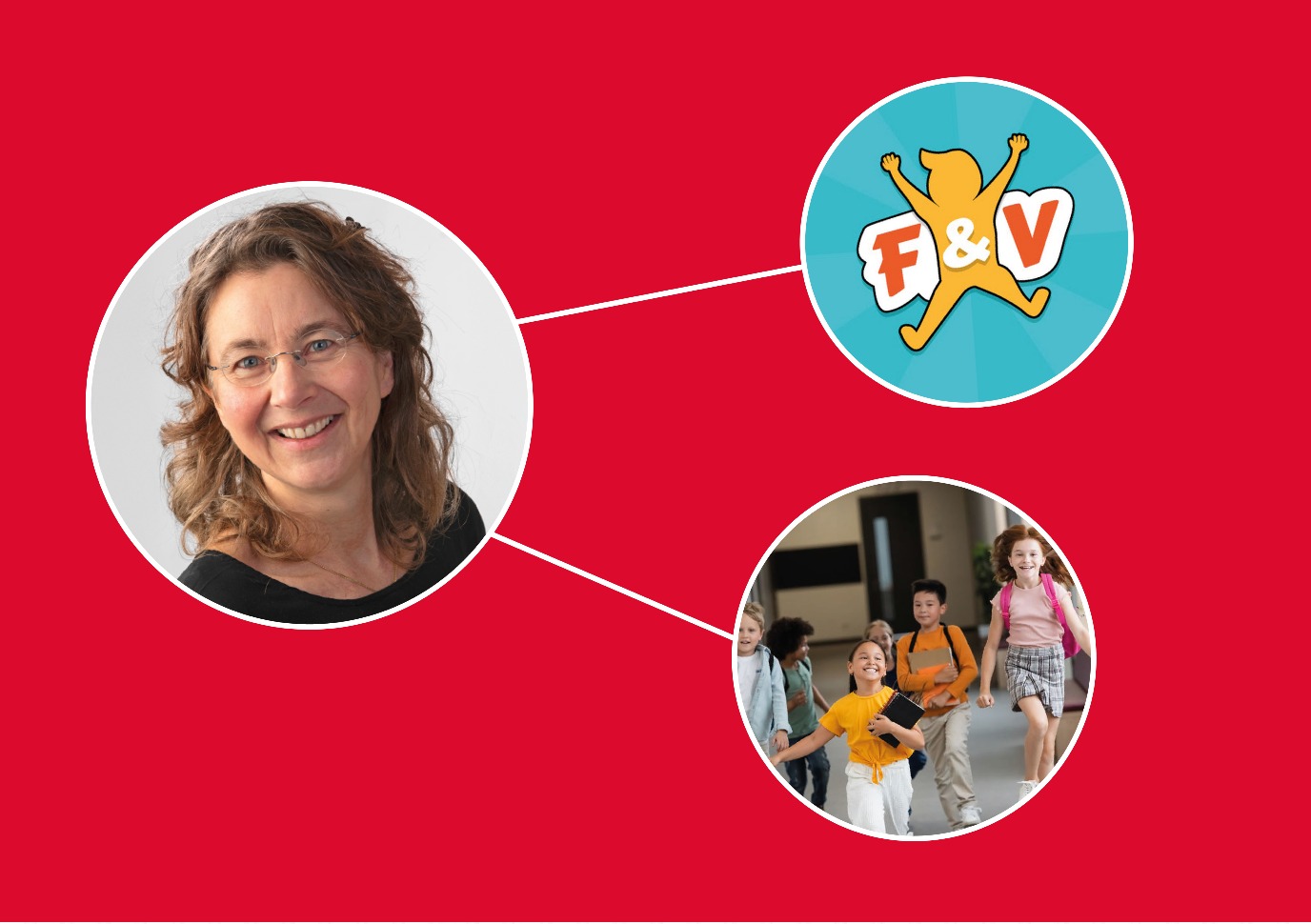Science for Society | Exercise-based learning improves children’s skills
Scientists work day by day on solutions to a variety of problems. From new drugs to smart farming techniques, our research helps society move forward. But this is not always immediately visible. In this series, we use stories about impactful innovations, products and ideas to show that science works!
Text: Jaap Ploeger, Corporate Communicatie UG
Teaching primary school children language and maths through exercise improves their attention and task orientation. Jumping and jogging for half an hour, three times a week, while absorbing the teaching material, improves test results. After two years, a significant improvement can be observed, particularly in spelling and arithmetic.
This was the outcome of a two-year study that was carried out among 500 primary school pupils from grades 4 and 5, led by movement scientist Esther Hartman. The results led to the Fit en Vaardig (Fit and Skilled) teaching programme, which, by 2024, has been implemented in over 300 classes throughout the country. The online programme contains some 800 various lessons that teachers can easily integrate into the classroom using an app.

The research
The idea for the research emerged from the results of a school programme in the United States, Hartman explains:
‘They had introduced teaching programmes in schools to combat childhood obesity. Those lessons focused purely on exercise rather than math or language. They noticed, however, that children progressed in their studies as a result. That made us think: could taking lessons while exercising also improve school performance?’
It was still quite a challenge to find space in the busy school schedules to try out the programme. In the end, 12 schools agreed to observe the same group of pupils for two years, alongside a control group (randomized controlled trial). They were taught using the method for 30 minutes thrice a week. Children had to give answers to maths problems, for example, by making certain movements or while jumping. Between the assignments, they jogged or marched on the spot.
Task orientation improvement
In comparison to the control group, the school performance of the experimental group improved over that period. Hartman: ‘As early as after one year, we already saw improvements in arithmetic, and after two years, in the automation of mental arithmetic, such as tables. We also noted an improvement in spelling and in the Dutch Cito Exam (Cito toets) scores after two years.’
One of the main findings of the study was that pupils were more task-oriented and therefore more focused on their work after the exercise programme. The researchers also received this feedback from teachers. She explains: ‘When you exercise, substances such as adrenaline are released in your brain, which improves your attention span. In addition, exercising more improves your cognitive skills, making your brain work better. The combination of exercise and learning also made it easier to meet the exercise guideline of one hour of moderate to vigorous activity a day, something for which there is increasingly less time at school these days.’
Freddie Fit and Femke Vaardig (Fit Freddie, and Skilled Femke)
After the study and the completion of two PhDs, the programme is now being managed by the company Springlab. They have adapted the programme to make it suitable for the market. Offering 800 various lessons, the avatars Freddie Fit and Femke Vaardig motivate children to exercise while learning. This way, there are enough lessons to fill an entire school year. Figures show that over 17,000 teachers have created an account. ‘After the research, it became clear that there was a need for various lessons, including standalone ones, that teachers could download and launch themselves via an app. Freddie and Femke are characters that children can relate to and that capture their attention,’ says Hartman.
Pilot for special education in primary schools
Hartman recently completed a pilot study in special education primary schools, which revealed interesting new findings. ‘We received requests from teachers to look into creating tailored lessons for pupils in special primary schools (SBO). They are less able to cope with the current lessons, says Hartman. ‘By involving teachers as early as the design process, tailor-made lessons were created. Clock-watching, for instance, is something these pupils have difficulty with, so a lesson could be designed specifically for that. The lessons are also shorter than in regular schools.’
With a few adjustments and clear instructions, it turned out that pupils in SBO moved slightly less intensively but were more task-oriented and therefore more focused during the Fit en Vaardig lessons. This was something that had particularly improved in regular education students immediately after the lessons. It also turned out that they enjoyed other types of movements more. They are now looking into developing a full-year programme for SBO. Hartman also wants to find out whether the motor skills of SBO pupils can be improved through the movement lessons. But that is a task for the future,’ she concludes.
Do you want to know more about Science for Society? Check out the overview page for the previous editions.
More news
-
17 November 2025
Artificial intelligence in healthcare
-
04 November 2025
AI Factory in Groningen advances digital sovereignty
-
03 November 2025
Menopause in perspective: How the media influences our perception
